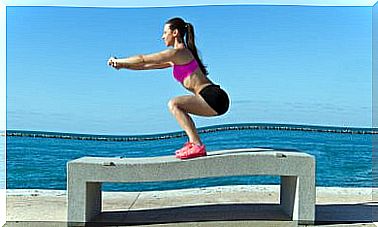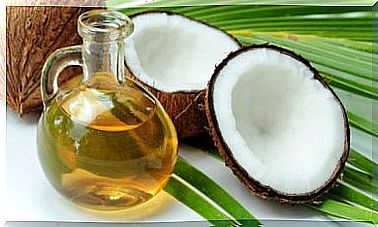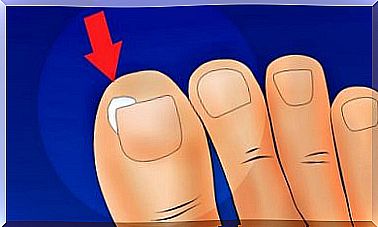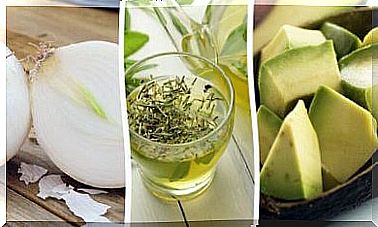The Great Medicinal Benefits Of Hot Springs
Hot springs can be very favorable for treating certain ailments, but we must take certain precautions so that our body does not experience adverse reactions, such as dizziness or low blood pressure
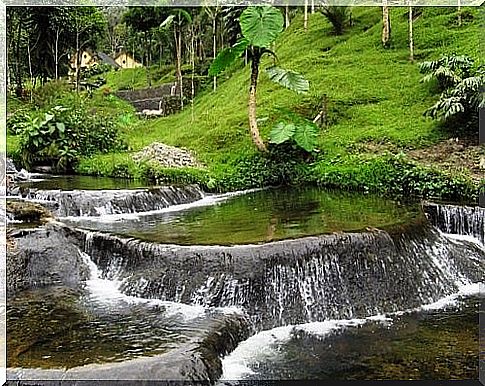
Hot springs are known throughout the world for their healing properties. They are effective in treating different diseases and ailments in a natural way.
These mineral waters spring from the ground with about 5 ° C warmer than at the surface, in most cases. Learn more about hot springs and their advantages in the following article.
Hot springs
Since ancient times, ancient civilizations used hot spring baths to cure diseases and also as a place for socialization. The oldest findings of this practice date back to 2000 years BC. C. in India, also in Italy and Greece.
Any country can have hot springs on its territory. Some of the world’s most important hot springs are located in Puerto Rico, Honduras, the United States, Panama, Chile, Peru, Bolivia, Colombia, Japan, Iceland, Mexico (the nation that offers the most, almost 20 different Zealand, Venezuela, Uruguay, Argentina and Spain.
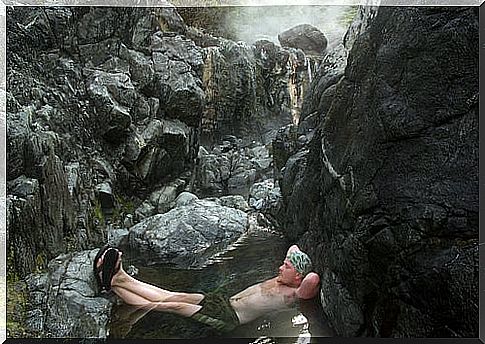
Characteristics
The hot springs come from the underground layers of the earth. They are at a higher temperature than the surface, and are rich in various mineral components. They are used in therapeutic treatments, especially in the form of baths, but also irrigations, inhalations and heating. They are usually located on a ground fault and rise in the form of steam or hot water.
They can be classified according to temperatures : cold (less than 20 ° C), hypothermal (20-35 ° C), mesothermal (35-45 ° C), hyperthermal (45-100 ° C) and super-thermal (100-150 ° C ). They can be made up of various minerals, such as iron, chlorine, sulfur, magnesium, chlorine, calcium, sodium, or bicarbonate.
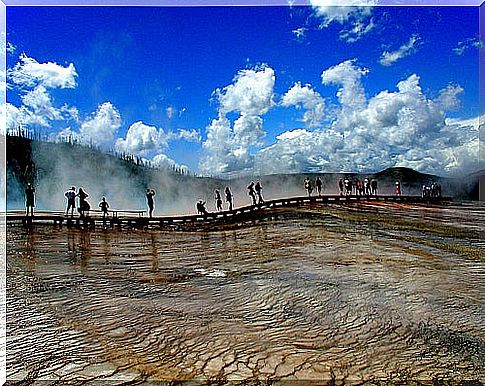
What are the effects of hot springs on the body?
Hot mineralized or thermal water has various effects on the body of men and women. They can be divided into three types: chemical, physical and biological. However, they all act at the same time.
- First of all, bathing increases body temperature, increases blood circulation and oxygenation. In this way, it helps to dissolve and eliminate toxins.
- As oxygenation increases, it improves the nourishment of the tissues in general.
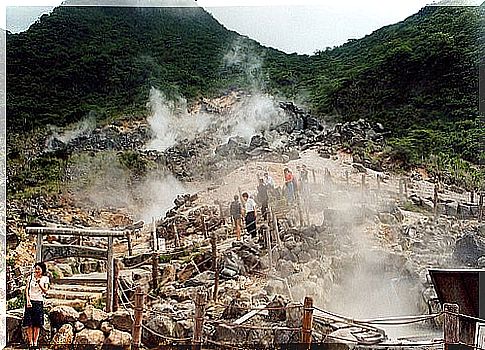
- It also improves and stimulates the immune system, relaxes the mind, increases endorphin production, and regulates glandular functions. These effects in the body are due to the minerals that the waters contain, such as magnesium, calcium, sulfur and carbon.
- There are skin diseases that can be greatly improved with regular visits to thermal centers. Especially those that contain sulfur. The disorders that benefit the most are psoriasis, fungi, and dermatitis.
Tips to keep in mind and enjoy the hot springs
Before the bath
- First of all, the same day that you arrive at the hot springs or the city that contains it, it is recommended not to take a bath. Tiredness and lack of habit to the microclimate can make you sick or not take advantage of its benefits. You may feel dizzy or listless, especially if the pool is very hot.
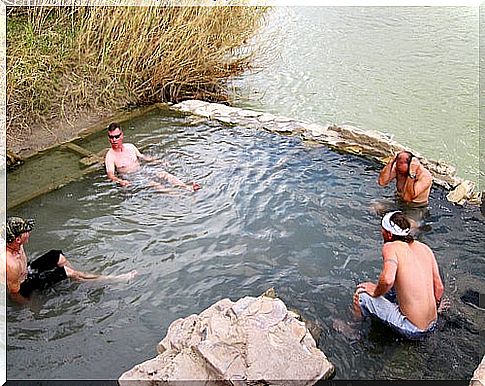
- If you take a bath for hygiene reasons, let it be at a temperature lower than or equal to the body temperature. This way you can reactivate circulation and energies.
- Do not take baths in hot springs during the first hours of the morning. During the night, blood pressure and reflexes decrease. This is why you feel “out of control” when you first wake up). If you opt for a morning bath these levels will be even lower. This could make you dizzy, faint, etc. The best thing is to get up and have a light breakfast. Later, after a walk or some quiet exercise, just go to the hot springs (mid-morning at least).
- Finally, consult the doctor who is available in the thermal complex before entering any of the pools. Pregnant women have some restrictions to dive into some of them, for example. And patients with a particular ailment must know the exact time of contact with water.
- Enter the hot springs after two hours of lunch. Digestion causes the blood to circulate towards the viscera. If you take a bath at that time, the hot water will cause the vessels to dilate and irrigate to other parts of the body. Then you will feel heavy, with a stomach ache, full of food, not wanting to do anything, etc.
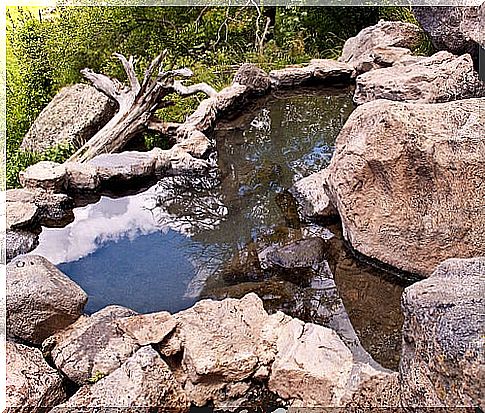
During the bath
- Do not stay longer than advisable in the pools. Especially those that are covered or with too hot water. The instructors or doctors are the ones who will indicate the minutes for each particular case.
- Keep in mind that the pressure that the hot water exerts on the rib cage makes the inspiration simpler but not the expiration. It can bring you drowsiness, a feeling of fatigue or tiredness. As soon as you experience these symptoms, get out of the pool.
- Finally, do not take too many baths in one day. Especially if you have a particular illness. The vessels do not react the same every time you enter the sinks and the first thing to contract are the blood conduits. If this happens several times in a very short period it can lead to complications.
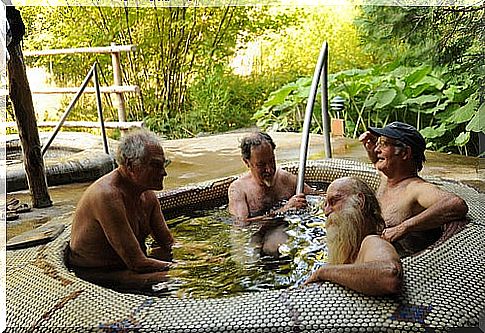
Images courtesy of David J Laporte, OakleyOriginals, Arian Zwegers, daveynin, John Fowler, and Wondelane.



